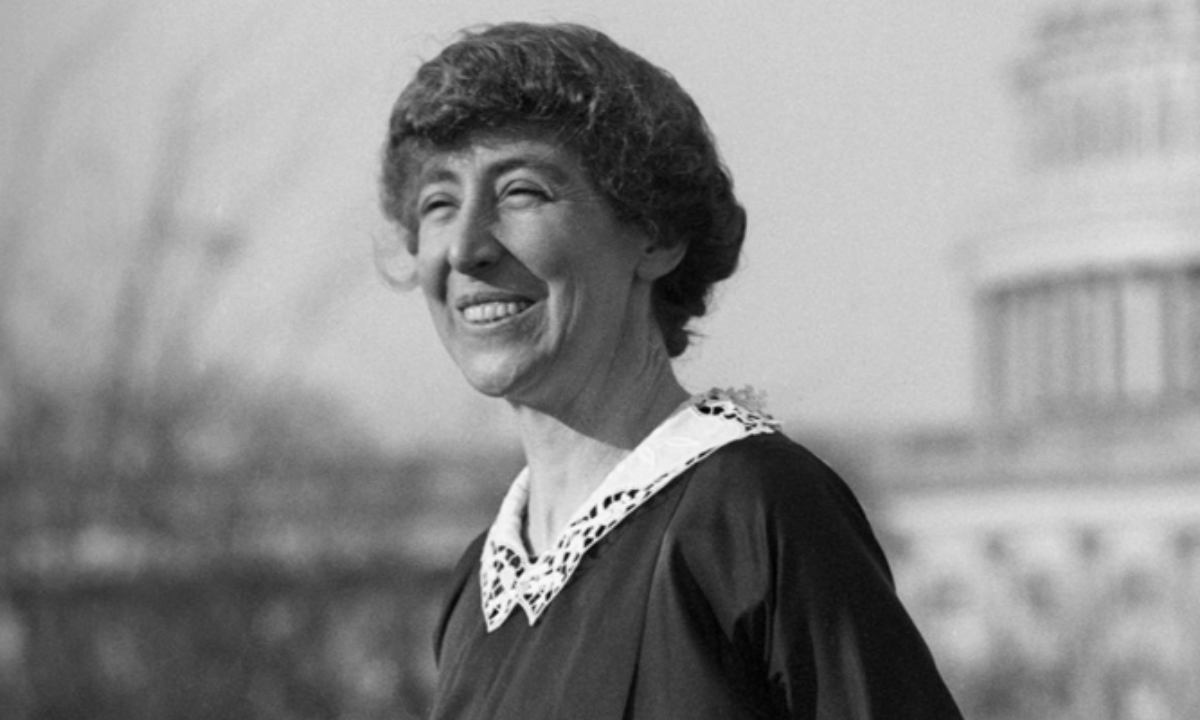When the supposed War on Women was not yet a catch phrase and women still did not have the right to vote, Jeannette Rankin was the first woman elected to Congress – a Republican woman – initially in 1916 and again in 1940.
In 1916, women’s universal suffrage was gaining traction and Rankin had been an activist for the cause. Jeannette Rankin had the distinction to be the only woman in Congress to vote in favor of the 19th Amendment giving women the right to vote. World War I had just gotten off the ground as well. She had a mind of her own and as a lifelong pacifist, she voted against the United States’ entry into WWI. She viewed this choice as an opportunity for a woman to say “no” to war. This vote ultimately proved to be controversial.
Jeannette Rankin had been a lobbyist for the National American Women’s Suffrage Association. She had worked to give women the right to vote in Montana, her home state. When she was elected to Congress, she took her efforts to Washington and voted for universal suffrage. Her term in Congress was short. Montana had redrawn the districts and she found herself in a heavily Democrat district. So she ran for the Senate instead and did not get past the primary.
Between terms, she continued her pacifist efforts as well as worked as a Field Secretary for the National Consumers League. She also worked unsuccessfully to enact the passage of a constitutional amendment to ban child labor.
In 1940, she was elected to the US Congress for the second time, defeating an incumbent known for being an anti-Semite. She was appointed to the Committee on Public Lands and the Committee on Insular Affairs. She continued her stance as a pacifist stating that “as a woman, I can’t go to war, and I refuse to send anyone else”. The country was embroiled in a heated debate as to whether the nation should enter WWII. This debate came to a sudden end with the attack on Pearl Harbor.
True to her pacifist stand, on December 8, 1941, she was the only member of Congress to vote against the Declaration of War on Japan. An angry mob encircled her as she left the Capital building. She was forced to take refuge in a phone booth until she could be rescued. Two days later, she abstained from the vote of war against Germany and Italy. The public’s backlash was fierce. This vote effectively ended her political career.
In 1972, she told the Montana Constitutional Convention, “If I am remembered for no other act, I want to be remembered as the only woman who ever voted to give women the right to vote.”




